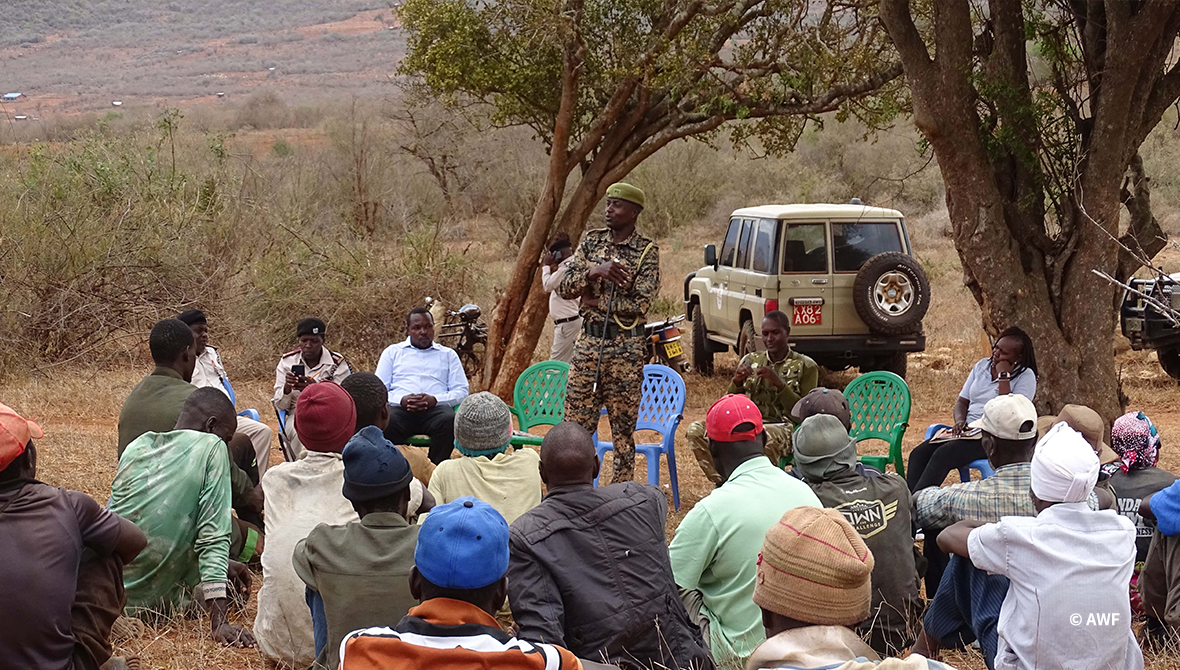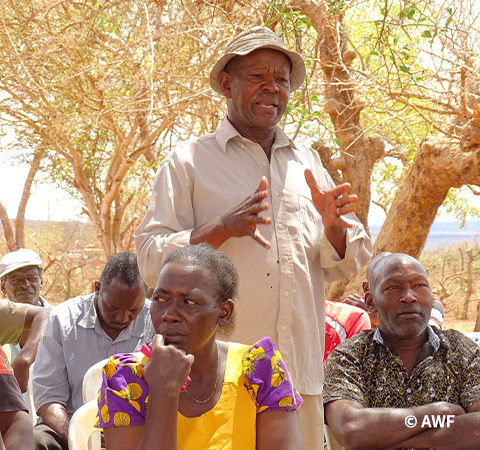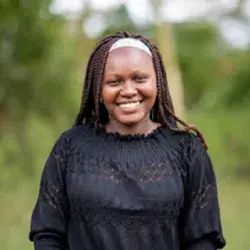AWF's Counter Wildlife Trafficking Program on the Frontlines

Illegal wildlife activities continue to threaten Africa's precious biodiversity, despite existing policies and strategies. The African Wildlife Foundation’s (AWF) Counter Wildlife Trafficking (CWT) program is working to supplement efforts to safeguard Africa's wildlife heritage.
Through the CWT program, AWF has supported the training of investigators in the meticulous collection and analysis of DNA evidence from crime scenes—hair samples, and blood traces. This crucial evidence becomes the silent witness, linking suspects to crimes and strengthening prosecutions. In 2023, 61 officers from Kenya Wildlife Service (KWS), Tanzania National Parks (TANAPA), and Tanzania Wildlife Authority (TAWA) were trained. This translates to stronger cases, safer communities, and wildlife thriving in their natural habitats.

Empowering Communities
AWF understands that communities hold the key to sustainable conservation. In villages where bushmeat poaching is prevalent, the program conducts sensitization barazas, bringing together villagers, authorities, and community service teams. These were conducted in collaboration with the KWS and Community Wildlife Service teams. These sessions educate communities about the devastating impact of wildlife crimes, the investigation process, and court procedures. In 2023, hundreds of people living around Tsavo National Park participated, leading to increased awareness, empowered communities, and a decrease in poaching activities. The program has also tackled the sensitive issue of children's involvement, ensuring their safety and upholding their rights.
Securing Evidence
Through this program, AWF has further engaged court users’ committees to ensure evidence is secure and admissible, leading to stronger prosecutions and harsher penalties for poachers. Last year it honored an invitation by the Voi Court Users Committee (CUC) to engage the committee members on wildlife exhibit management. Further, in Tsavo National Park, AWF supported the construction of an evidence storage facility, showcasing its commitment to improved exhibit management. This facility ensures proper documentation, storage, and security, leading to more successful prosecutions and safer wildlife populations.
The fight against illegal wildlife activities demands a united front. AWF's CWT program equips various stakeholders with the tools they need: investigators with DNA forensics skills, communities with knowledge and empowerment, and courts with secure evidence management.
About the Counter Wildlife Trafficking (CWT) program
-
The program seeks to empower authorities with the tools and knowledge they need to protect endangered species.
-
Recent trainings in Kenya and Tanzania equipped 61 officers with skills to handle DNA evidence effectively.
-
AWF organized sensitization barazas in villages near Tsavo National Park prone to poaching.
-
AWF supported the construction of an evidence storage facility in Tsavo National Park
